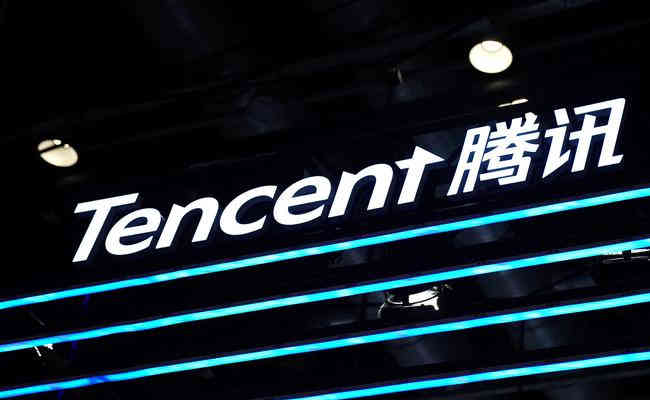Tencent selects Singapore as its Asia Hub after geopolitical frictions
By MYBRANDBOOK

Tencent Holdings has selected Asia as its hub. This move came after the company faced setbacks in the U.S. and India.
As per sources, the people who are aware of this matter said that China based Tencent had been discussing Singapore as a potential regional hub and geopolitical tensions accelerated its plans. They also said that the company was considering the shift of some business operations -- including international game publishing -- out of its home country.
The technology giants of China are looking towards Southeast Asia due to the growing hostility from the U.S. and other major markets, setting up the region -- with its 650 million increasingly smartphone-savvy population -- as a key battleground. In the U.S. President Donald Trump has banned the country’s entities from dealing with Tencent’s WeChat from September 20. Also in India, the company has faced a ban on its PUBG Mobile and Arena of Valor.
Tencent said in a statement that it will open a new office in Singapore to “support our growing business in Southeast Asia and beyond,” in addition to current ones in Malaysia, Indonesia and Thailand. It’s recruiting for various positions including tech and business development, the company said, without offering details. Tencent currently has dozens of job openings in Singapore for businesses including cross-border commerce, cloud computing and esports, according to its hiring site.
With Beijing tightening its grip on Hong Kong, Singapore is attracting both Western and Chinese corporations as a regional base because of its advanced financial and legal system.
TikTok’s owner ByteDance is planning to spend several billion dollars and add hundreds of jobs in Singapore over the next three years, as per news source. It has also applied for a digital-bank license from the city-state’s central bank, alongside Alibaba-backed Ant Group and Tencent-backed Sea Ltd.
Alibaba has splashed out $4 billion to take full control of Singapore-based regional e-commerce platform Lazada, which aims to serve 300 million people in Southeast Asia by 2030. In May, Alibaba struck a deal to buy half of Singapore’s AXA Tower, valued at around $1.2 billion, underscoring its ambition to expand in the market. China’s largest corporation is in talks to invest $3 billion into Singapore-based ride-hailing giant Grab Holdings Inc., the news source revealed.
A the China market has saturated and stricter regulatory controls on gaming slow down domestic growth, Tencent has intensified its efforts to expand globally. Tapping into popular franchises from investees like Activision Blizzard Inc. and turning them into mobile hits marked its biggest global successes so far. In 2019’s final quarter, international titles like Call of Duty Mobile and PUBG Mobile accounted for 23% of Tencent’s $17 billion gaming empire, according to the company.
In spite of Tencent’s best efforts, however, geopolitical frictions are still likely to hinder its international expansion push. South Korea’s PUBG Corp. has withdrawn the Chinese company’s publishing rights for PUBG Mobile in India, after the country banned the popular mobile shooter alongside more than a hundred Chinese-made apps amid border clashes. Trump’s Aug. 6 executive order, meanwhile, prohibits unspecified transactions with WeChat and its operator Tencent, and the Commerce Department has yet to determine whether gaming activities will be banned by September 20.


Legal Battle Over IT Act Intensifies Amid Musk’s India Plans
The outcome of the legal dispute between X Corp and the Indian government c...

Wipro inks 10-year deal with Phoenix Group's ReAssure UK worth
The agreement, executed through Wipro and its 100% subsidiary,...

Centre announces that DPDP Rules nearing Finalisation by April
The government seeks to refine the rules for robust data protection, ensuri...

Home Ministry cracks down on PoS agents in digital arrest scam
Digital arrest scams are a growing cybercrime where victims are coerced or ...


ICONS OF INDIA : SUNIL VACHANI
Sunil Vachani is the Chairman of Dixon Technologies (India) Ltd. Under...

ICONS OF INDIA : RAJESH NAMBIAR
Rajesh leads the company’s India associates and enhances relationshi...

ICONS OF INDIA : SRIDHAR VEMBU
Sridhar Vembu is the chief executive officer (CEO) of Zoho Corporation...


CSC - Common Service Centres
CSC initiative in India is a strategic cornerstone of the Digital Indi...

BSE - Bombay Stock Exchange
The Bombay Stock Exchange (BSE) is one of India’s largest and oldest...

CERT-IN - Indian Computer Emergency Response Team
CERT-In is a national nodal agency for responding to computer security...


Indian Tech Talent Excelling The Tech World - NIKESH ARORA, Chairman CEO - Palo Alto Networks
Nikesh Arora, the Chairman and CEO of Palo Alto Networks, is steering ...

Indian Tech Talent Excelling The Tech World - Sundar Pichai, CEO- Alphabet Inc.
Sundar Pichai, the CEO of Google and its parent company Alphabet Inc.,...

Indian Tech Talent Excelling The Tech World - Vinod Dham, Founder & Executive Managing Partner, IndoUS Venture Partners
Vinod Dham, known as the “Father of the Pentium Chip,” has left an...
 of images belongs to the respective copyright holders
of images belongs to the respective copyright holders